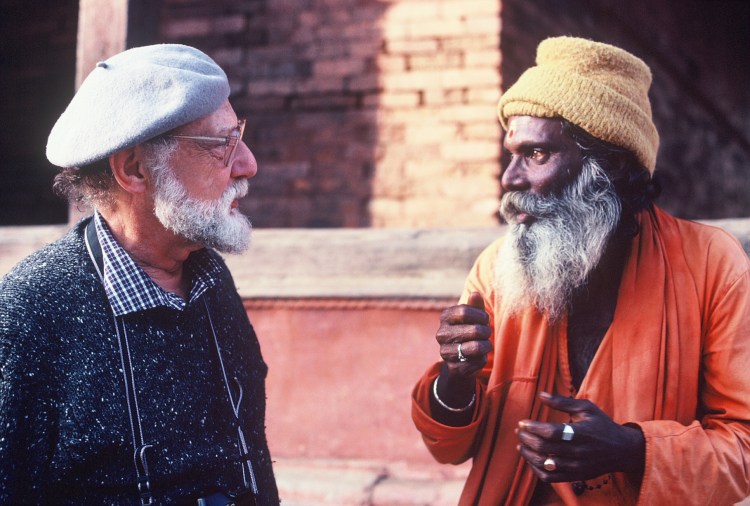The Wiscasset Public Library has opened a six-week-long exhibit of the works of photographer, photojournalist and filmmaker Ray Witlin in its upstairs art room, at 21 High St.
Witlin’s life and career were defined by a quest to create his personal brand of photojournalism, a quest that ultimately led him on a multi-media exploration of 55 countries. Hence the title of the show “Ray Witlin: a Quest for Photojournalism.”
Witlin began his career as a graphic artist in New York City. When he moved into still photography he set out for South America, where he lived for 15 years in Bogota, Colombia. His work for Black Star, a photo agency in New York, and several commercial sponsors eventually took him to all the countries in Central and South America. His taste for exploring with a camera was established.
During the 1960s, back in New York City, Witlin branched into documentaries, making a number of prize-winning films, including “Light in the West: Photography of the American Frontier.”
But by 1980, his strong interest in life outside the United States led him back to still photography and foreign travel. Picking up assignments from the World Bank, the Ford Foundation, and the United Nations, he explored many countries around the world. His photos and essays appeared in numerous publications for these organizations, as well as a major exhibition at the United Nations of his work on river blindness. TChinlund said that the head of photography for the United Nations referred to Ray as “our man in Africa.”
While on assignment, he always looked for chances to shoot photos “for himself,” usually of people whose beauty or vulnerability struck his emotions.
His wife, Phyllis Chinlund, has written a moving memoir about the last years of Witlin’s life, when he was afflicted with Alzheimer’s disease and they moved from Manhattan to Maine. The book, “Looking Back from the Gate: A Story of Love, Art and Dementia,” and some of Witlin’s photographs will be for sale at the library.
Until the end of his life Witlin carried his camera with him everywhere he went. “He’s forever with his head in the underbrush, shooting what appear to be ordinary shrubs. If we go somewhere and he can’t shoot for some reason, he feels he’s wasting his time,” Chinlund wrote in her memoir.
For more information, call 882-7161.
Send questions/comments to the editors.



Success. Please wait for the page to reload. If the page does not reload within 5 seconds, please refresh the page.
Enter your email and password to access comments.
Hi, to comment on stories you must . This profile is in addition to your subscription and website login.
Already have a commenting profile? .
Invalid username/password.
Please check your email to confirm and complete your registration.
Only subscribers are eligible to post comments. Please subscribe or login first for digital access. Here’s why.
Use the form below to reset your password. When you've submitted your account email, we will send an email with a reset code.